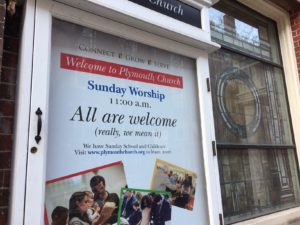Paul Brandeis Raushenbush writes of Lent, “some will fast from mindless consumption of what distracts us; others will offer radical service to neighbor; but what is most important about Lent is that we make time and space for an awareness that God is with us and loves us—even right here and now.”
I love Lent. I’m glad to be part of a Protestant tradition that doesn’t skip or gloss over it. I’ve spent some time reflecting this week about why I love it and I think I’ve come to a conclusion. Praise and joy feel shallow without first having faced the hard stuff. Easter is only joyous because of Good Friday. And this mystery of Cross and Resurrection is a reflection of the rhythm of life that is hard for us name. But if I try to name it, it will sound something like this: Lent is a reset when we get to reflect on the hard stuff that makes the great stuff recognizably great. And we get there by different means.
About this time each year, we hear people asking one another, “What are you doing for Lent?” Giving up chocolate, or Facebook, or worrying, or booze are a common response. We give up something that is a regular part of our day so that each time we reach for it, our attention is turned back to Christ in the wilderness. We connect with our temptations. And chocolate might be a daily, less significant one, but hopefully by God’s grace we start forming an awareness of bigger temptations we contend with in life.
Others of us choose to do something for Lent; volunteer at the soup kitchen on Saturdays, add a special, extra time of prayer into our busy day, drop by and talk with our elderly neighbor who we know to be lonely twice each week. We take up a burden and are reminded of the burden Christ took up for us. And, hopefully, by God’s grace, we become people who embrace that burden until it no longer feels like such. It becomes a joy.
Whatever we do to honor Lent, let us do this: hold fast to the why. Be aware of God’s love and compassion for us. Connect with things God is calling us to or away from. Listen hard and be willing to see the things within ourselves that we prefer to overlook. The great mystery of God-work is happening all the time. So, may we go into Lent looking for how it is happening in us. The journey to the Cross is difficult. But Sunday, God has promised, is indeed coming. And, it will mean more, Easter will mean so much more, if we have embraced the season of Lent. Welcome to the season of the night, but go into knowing that joy comes in the morning.

